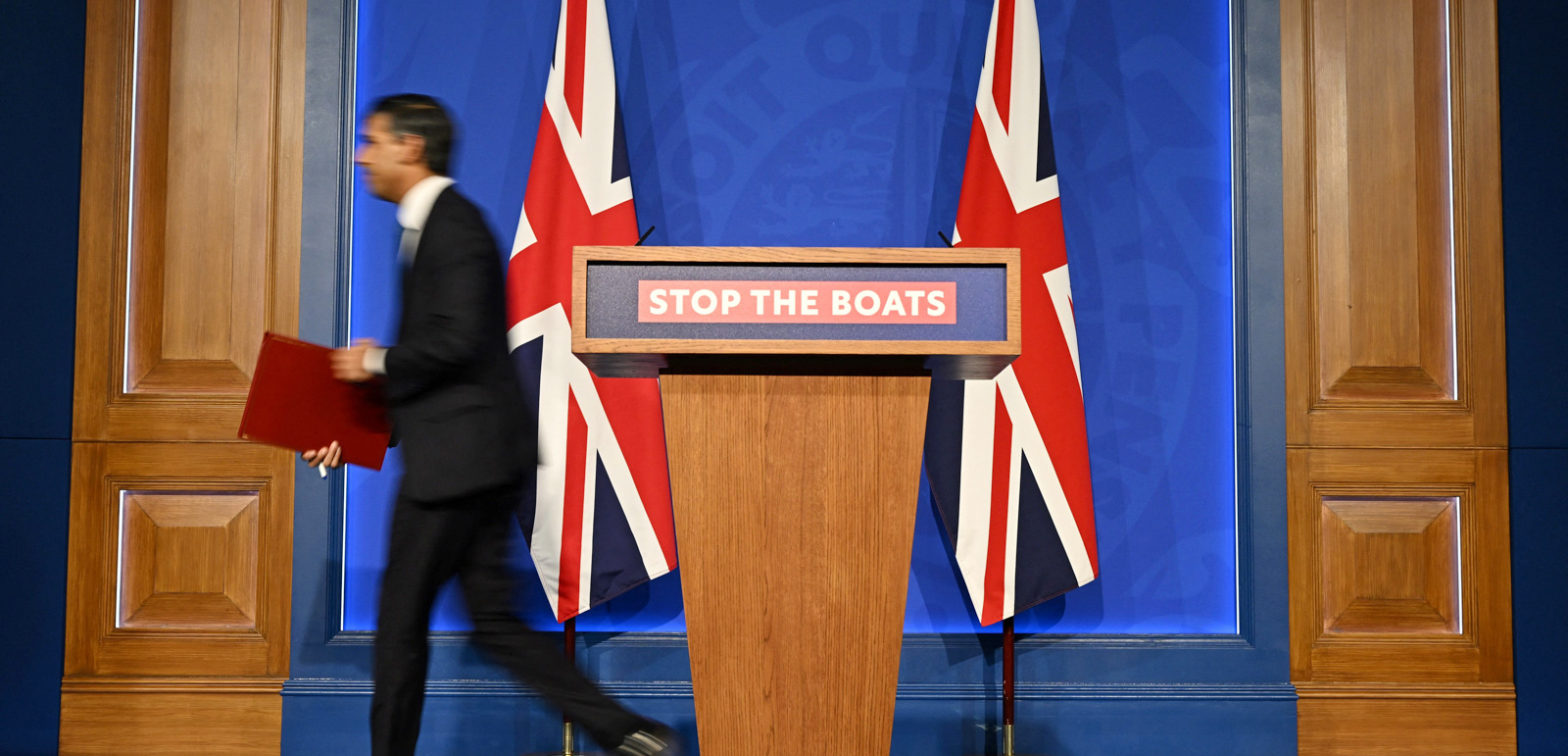The issue of immigration will be a battleground in the next UK election
Both parties have pledged to crack down on illegal arrivals. Minority groups are understandably concerned about what any new policy says about how welcoming our country is
–

It seems like a lifetime ago that I hopped off the plane in Kigali as Priti Patel, the then home secretary announced that the UK had signed an agreement outlining the government’s intention to deport illegal immigrants to Rwanda. The deal, signed in April 2022, shocked many but the government was insistent that bold measures were needed to stop smuggling gangs.
The policy’s legality was almost immediately questioned. When I asked Patel about those concerns she was unequivocal, anyone who opposed it in the courts would be easily defeated but that confidence has proven to be misplaced. Nearly two years later, we’ve had three different home secretaries but no deportation flights to Rwanda and instead the policy has become a regular feature of our political discourse and used by critics as an example of the government’s failure to deliver on its immigration pledges.
Immigration into the UK has for years dominated the debate in Westminster. From David Cameron pledging to cut net migration in 2010 to the “tens of thousands”, to its prominence in the Brexit referendum in 2016, politicians have grappled with this issue for more than a decade. A recent YouGov poll shows the public still care about it deeply. More than 40% of Britons say it is one of the top issues facing the country, which is why the current incumbent in No 10, has pinned his political future on getting the Rwanda policy over the line. Rishi Sunak’s political future could potentially hinge on him delivering on it.
For the more than 10 million people in England and Wales who were born abroad or the significant number of UK citizens from ethnic minorities across the UK, of which the British Muslim community make up a large part, the hardline approach from the government is likely to cause concern. These marginalised communities will have watched the prime minister undeterred after the Supreme Court ruled his Rwanda policy unlawful, so determined to get this policy in place that he opted to negotiate and sign a brand new treaty. Those I’ve spoken to in communities across the UK have often raised worries about what the policy says about how welcoming our country is. Nonetheless, the government will do what it can to make it work before the next general election and it is going to feature heavily over the coming months.
A bill currently going through parliament declares Rwanda safe for asylum seekers and is intended to satisfy the Supreme Court’s concerns, but when it is put to a vote, Sunak faces a huge test. The bill has already seen him lose his immigration minister Robert Jenrick and has earned significant criticism from his former home secretary Suella Braverman. There’s now talk of a major rebellion and a full blown Tory civil war over the policy.
The prime minister has also been warned by the leaders of groups on the right of the Conservative party that they could vote against his Rwanda bill if he does not accept their demands to toughen up the legislation, which they feel doesn’t go far enough. They believe it needs bolstering to convince the public the government will meet its pledge to stop the boats and they’re adamant they have the numbers to block the bill’s passing.
If Sunak decides to bow down to their demands, he risks losing the support of MPs from the centre of his party, who are worried about this policy going too far. Parliamentarians on both sides of the debate tell me they can’t predict with any confidence how this will play out, but they all agree if the policy does get blocked, Sunak could be in real trouble.
But it’s not just the Conservatives who are talking tough on immigration. It has notoriously been a tricky subject for the Labour party, but last month as I sat in Milton Keynes listening to Keir Starmer outline his party’s position, it was clear the opposition wants to be seen as being on the front foot with this.
Starmer says a Labour government would axe the Rwanda policy. When I pointed out to him that doing so would mean he would essentially be throwing away the £250m of taxpayers money that has already been spent on it, he said the money had been wasted for nothing already.
But what would take its place? Labour has floated the idea of working more closely with the EU, potentially securing a new agreement for asylum seekers while also focusing more on border security. Yet while the party says it will replace the Rwanda policy, sources tell me that all options remain on the table, including using off-shore processing centres in an effort to clamp down on illegal migration.
It’s clear Labour know they need to have a coherent strategy on immigration if they’re to have any chance of winning the next election. Neither side will be shy to take on the issue as we head towards a general election. The debate over immigration, which could be central to the battle for No 10, has only just started.
Shehab Khan is an award-winning presenter and political correspondent for ITV News
Topics
Get the Hyphen weekly
Subscribe to Hyphen’s weekly round-up for insightful reportage, commentary and the latest arts and lifestyle coverage, from across the UK and Europe
